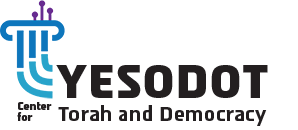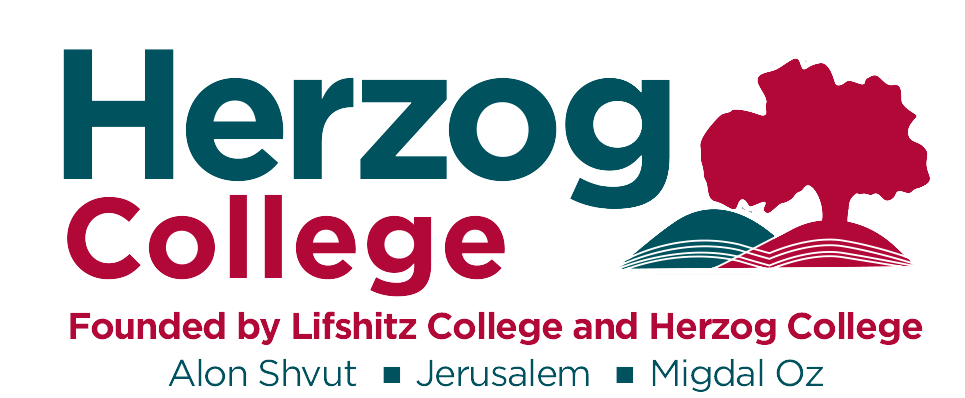The enslavement in Egypt reminds us that we were once slaves. Resting on Shabbat reminds us that we are partners in freedom. The Seder night affords us the opportunity to experience both these elements together.
The same is true of the Seder night this year, with its enslavement and its shackles.
We do not go out during this month of Nisan. Nisan began with us closed in our homes, fragmented into family and community units. From our porches and windows, we can see the trees blooming and nature stretched and spread before us, but we cannot properly enjoy its brilliance. Nisan and its blessings pass over us in our seclusion, contrary to our hearts’ desire. The festival of our freedom approaches while we are enslaved to a reality of disease and epidemic, carefully protecting our lives and the lives of those dear to us. So, we are challenged by the days of the festival of freedom and the festival of springtime knocking at our door, while we keep our distance and do not draw near. Are we, indeed, shackled?
Anyone who has experienced building a house, preferably his own house, remembers the experience of worry, the run-around, the exertion. If one actually mixed the cement, he will also remember the aching back and tight muscles. Yet, despite the labor and physical pain, he did not feel enslaved. The significant feeling that accompanied the back pain is a sense of vitality, progress, building…and responsibility. Personally, more than once, I’ve actually experienced a feeling of exhilaration from labor of that kind. This sense of exhilaration evoked another feeling that I’ve experienced during certain days of Pesach, when the word “slavery” and its derivatives shouted out to me in a palpable way from the Haggada. Slavery, despite the fact that I was seated like a queen at a table filled with plenty.
From similar situations, we can derive genuine feelings and experiences, different and even contrary.
Rav Kook says: “…there can be an educated slave whose spirit is full of freedom, and conversely, a free person whose spirit is one of slavery. Fundamental freedom is that exalted spirit, through which man and the entire nation is uplifted, to be true to one’s internal identity, to the spiritual quality of the divine image within him. This feature enables a person to feel that their life has purpose and value. This is not true of the spirit of a slave, the content of whose life and whose feeling is not tied to the character of his spiritual identity, but rather, to what is beautiful and good for the other, who controls him, officially or morally – what the other finds to be beautiful and good” (“Our Freedom,” Maamarei Harav Kook).
In the final analysis, the experience of slavery, like the experience of freedom, depends on a person’s inner ability to control the situation in accordance with the inner motivation of the person himself.
One can observe this phenomenon from an additional direction. We are commanded to cease doing all labor on Shabbat, the same Shabbat on which we attest again and again about the Creation of the world and about…the Exodus from Egypt. When our rabbis sought to clarify what is that labor whose performance we are commanded to cease on Shabbat, they delineated 39 primary categories of labor for us. From where did they derive these categories? We would have expected that they would have been derived from our seminal labor experience: the experience of enslavement in Egypt, which is mentioned several times over the course of Shabbat. However, our rabbis derived the categories from a later seminal event, which took place during the sojourn in the wilderness, a time of lack of clarity, an event that established their identity as a free people. Our rabbis derived the primary categories of labor from the labor of the construction of the Tabernacle (not the permanent, majestic Temple, but rather the itinerant Tabernacle). The derivation from the labor in the Tabernacle relays a message: there is labor and there is labor.
The Egyptian slavery was a situation that anchored the movement of the soul, negating responsibility for one’s life, the lives of those dear to him, and his self-management. However, that same Sisyphean labor can be redirected to a different movement of the soul, to building, to the path, to personal and national commitment and to becoming a vessel for meaning, as occurs when building a Tabernacle in the wilderness. The directing link between the primary categories of labor specifically to the labor in the Tabernacle provides an allusion that “man was born to travail” and that it is his right to self-determination, responsibility, management and partnership in the world. The enslavement in Egypt remains a seminal event, but not hate of labor itself.
On Shabbat we are called upon to cease from labor and to simply enjoy the reality that we built with our various associations in the course of the week. It is not about a nation of slaves that rests on Shabbat, whom the master pampered with one day of rest, but rather a nation of responsible laborers, who are partners in building and creating the world, within the framework of the covenant, that forsakes the tools of labor and sits a little, turning to the task of a “taste of the World to Come.” For relaxation.
The slave – is bereft of any responsibility. Despite all his labor, he is not a partner in Creation; he is not even a sub-contractor. He implements the orders of another. The strength of a free person is in his labor, in his movement, in his partnership and responsibility for the task and its results. The free person is a partner in the planning and action, as well as in the decision to release now, because it is Shabbat.
If on every Shabbat we are required to think about work through the prism of the Tabernacle and its message, on Pesach, once a year, free people are commanded to think about labor through the prism of the Egyptian slavery. To remember that those actions that in one reality are Sisyphean, cause despair, and a cry to heaven, in a different reality, are acts that convey that we are partners in Creation as free people, and on Shabbat, as actual princes. Princes are not exempt from labor, rather they are responsible for the reality and management. Princes who are pampered and irresponsible will not long remain on their thrones. The responsible one repeatedly chooses how to formulate reality and its challenges and build as partners with God On High, in the sense of: “To cultivate it and to preserve it.”
The enslavement in Egypt reminds us that we were once slaves. Resting on Shabbat reminds us that we are partners in freedom. The Seder night affords us the opportunity to experience both these elements together.
The same is true of the Seder night this year, with its enslavement and its shackles.
I will say with responsibility in both senses:
Pleasant are people, pleasant are trees, and pleasant is the world. We will examine it from within and will recognize this beauty.
Ruhama Gebel-Redman
Director of Amutat Yesodot, Herzog College


